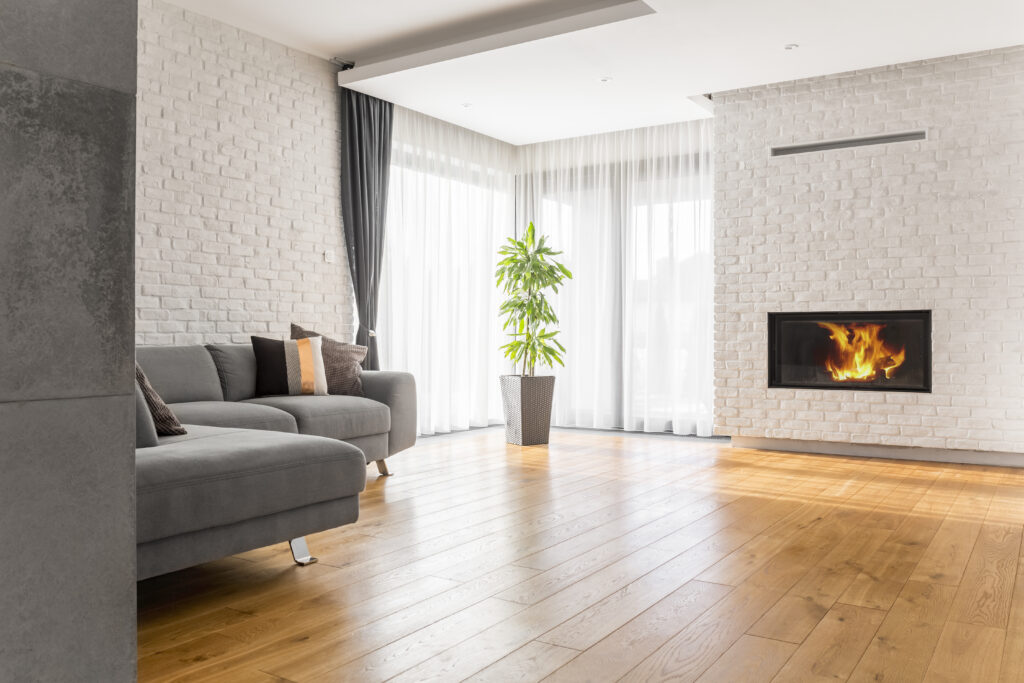What are the benefits of eco friendly flooring? Eco-friendly flooring has become a popular choice among homeowners, and for good reason. Not only does it promote sustainability and reduce the impact on the environment, but it also has several benefits for homeowners. In this article, we will discuss the benefits of eco-friendly flooring and why you should consider it for your home.

One of the primary benefits of eco-friendly flooring is its sustainability. Eco-friendly flooring is made from renewable resources, such as bamboo, cork, and reclaimed wood. These materials are harvested in a sustainable manner, which means they are grown and harvested in a way that does not harm the environment. This helps to reduce the carbon footprint of your home and promote sustainable living.
Eco-friendly flooring is also healthier for your home. Traditional flooring materials, such as carpet, can trap dust, dirt, and other allergens, which can lead to poor indoor air quality. Eco-friendly flooring, on the other hand, is easy to clean and does not trap allergens, which can help to promote healthier living in your home if you suffer from allergies.
Eco-friendly flooring is also highly durable, which means it can withstand heavy foot traffic and last for many years. This is because eco-friendly flooring is made from high-quality materials that are designed to withstand wear and tear. This means that you can enjoy your flooring for many years without having to worry about replacing it.
Another benefit is the variety of options available. Eco-friendly flooring comes in a wide range of colours, textures, and styles, which means you can find the perfect flooring to match your home's décor. From bamboo to cork to reclaimed wood, there are many eco-friendly flooring options available to suit your style and budget.
Investing in eco-friendly flooring can also increase the value of your home. As more and more homeowners become environmentally conscious, eco-friendly flooring is becoming increasingly popular. This means that having eco-friendly flooring in your home can be a selling point if you decide to sell your home in the future.
Eco-friendly flooring has several benefits that make it a great choice for homeowners. It is sustainable, promotes healthier living, is highly durable, comes in a variety of options, and can increase the value of your home. If you are looking for a flooring option that is both environmentally friendly and offers several benefits, eco-friendly flooring is the perfect choice.

There are several types of flooring that are considered eco-friendly. Here are some popular options:
Bamboo is a highly renewable resource and is considered one of the most eco-friendly flooring options available. It is highly durable and can withstand heavy foot traffic.
Cork is harvested from the bark of cork oak trees and is a highly sustainable material. It is also highly resilient, hypoallergenic, and naturally resistant to mould and mildew.
Reclaimed wood is salvaged from old buildings, barns, and other structures that are no longer in use. Using reclaimed wood for flooring helps to reduce waste and conserve natural resources.
Linoleum is made from all-natural materials, such as linseed oil, pine resin, and wood flour. It is also biodegradable and recyclable, making it an eco-friendly option.
Carpet tiles made from recycled materials, such as recycled plastic bottles, are a popular eco-friendly flooring option. They are easy to install, highly durable, and can be easily replaced if damaged.
Overall, there are many eco-friendly flooring options available that offer a variety of benefits. When choosing an eco-friendly flooring option, it is important to consider factors such as durability, sustainability, and overall environmental impact.
Eco-friendly flooring can vary in cost depending on the type of flooring and the quality of the material. In some cases, eco-friendly flooring can be more expensive than traditional flooring options. However, it is important to consider the long-term benefits of environmentally friendly flooring when making a purchasing decision.
For example, eco-friendly flooring can be more durable and longer-lasting than traditional flooring, which can save you money in the long run. Eco-friendly flooring can also increase the value of your home, which can be a good return on your investment if you plan to sell your home in the future.
Additionally, some eco-friendly flooring options, such as bamboo and cork, are highly renewable and can be more affordable than traditional hardwood flooring. Recycled carpet tiles are also an affordable eco-friendly flooring option that can be a cost-effective choice for homeowners.
Overall, while some eco-friendly flooring options may be more expensive upfront, the long-term benefits and environmental impact can make them a worthwhile investment for homeowners.

Carpets can vary in their eco-friendliness depending on the materials and manufacturing processes used to create them. Traditional carpets are typically made from synthetic materials, such as nylon or polyester, which are derived from non-renewable sources and can have a high environmental impact.
However, there are eco-friendly carpet options available that are made from natural or recycled materials. For example, wool carpets are a popular eco-friendly option because they are made from a renewable resource and are biodegradable. Other eco-friendly carpet materials include jute, seagrass, and sisal, which are made from natural fibres and are highly sustainable.
In addition to the materials used, the manufacturing process of carpets can also impact their eco-friendliness. Look for carpets that are made using sustainable manufacturing practices, such as those that use renewable energy sources or minimize waste.
It is also important to consider the indoor air quality of carpets. Look for carpets that are low in volatile organic compounds (VOCs) and have been certified by third-party organizations, such as Green Label Plus or the Carpet and Rug Institute's Green Label program.
Overall, when choosing a carpet, it is important to consider both the materials and manufacturing processes used to create it, as well as its impact on indoor air quality. Choosing an eco-friendly carpet can help reduce your environmental impact and promote sustainable living.